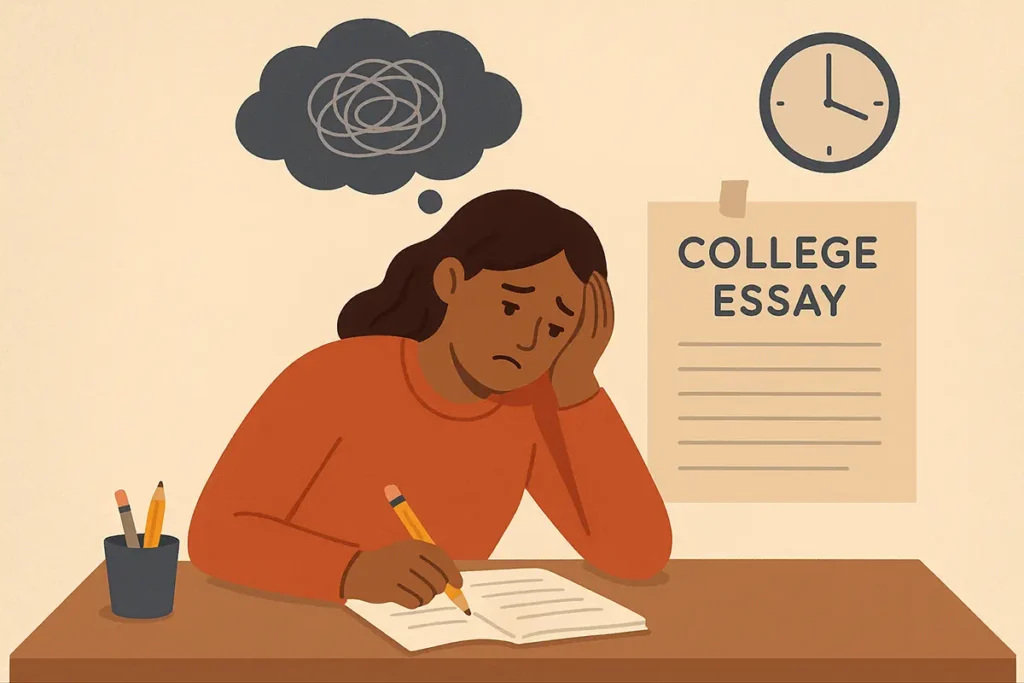Writing your college application essay is a challenging task. And it’s made even more intimidating by its significance — it’s your chance to present your best self to admissions officers and share your story beyond grades and test scores.
If you’re staring at a blank page (or avoiding it altogether), know that you’re not alone … even passionate and prolific writers can struggle with writer’s block, especially when it comes to personal essays. The good news? You can overcome writer’s block with just a few practical strategies.
With early decision deadlines looming, here are five ways to overcome writer’s block and begin writing your college application essay.

1. Start with a story, not a thesis
Some of the finest college application essays are rooted in moments and memories. Instead of stressing over the “perfect opening,” start with a personal story or memory that holds meaning for you.
For example, think about a time when you learned something, faced a challenge, or felt proud of yourself. Write it down as if you were telling a friend what happened. You’ll be amazed at how quickly your words start flowing once you relax and stop trying to “sound academic.”
2. Use your voice (and an app)
Typing and blank pages can feel overwhelming, and many students find it easier to talk than to write. If this is you, open your favorite voice memo or transcription app and record yourself answering the essay prompt as if you were in an interview with yourself. Don’t worry about grammar or structure. Just talk.
Later, replay the recording and transcribe what you said. It won’t be perfect, but it will help shape your narrative and give you raw, authentic sentences you can use in your essay.
3. Write to time
One reason many people procrastinate is that they believe writing will require hours of time. Instead of booking an entire afternoon, start small by setting a timer for just 15 minutes and write until the timer goes off. Chances are, you’ll find some momentum and keep going. And if not, you’ve still made progress, which is ultimately what matters.
4. Brain dump first, edit later
As Winston Churchill said, “Perfectionism is the enemy of progress.” If you’re stuck trying to craft the perfect opening sentence, let it go. Instead, write down everything that comes to mind — no judgment, no editing.
Your first draft doesn’t need to look anything like your final essay. The key is getting your ideas down on paper. You can refine them later, but you can’t edit a blank page.
5. Revisit your why
When writing feels hard, take a step back. This essay isn’t just another homework assignment — it’s your chance to share your story. Admissions officers don’t expect perfection; they want to see your personality, values, and experiences.
Make a quick list of reasons why college excites you or what goals you want to achieve. Some students even create a vision board or sticky note reminder to keep nearby. Keeping your “why” in view can boost motivation when words won’t come.
Final thoughts
Writer’s block is common, but it doesn’t have to stop you. Begin with a small step — a story, a voice memo, or a quick brain dump — and build from there. Writing is a process, not a one-time task. Every sentence you write brings you closer to a strong essay that shows who you are.
If you’d like support along the way, I offer several editing packages for high school seniors. Together, we’ll refine your writing so your story shines.